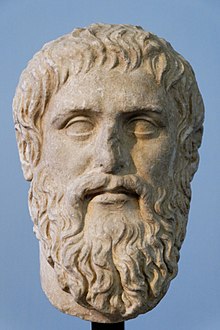
Plato Page 5
We found 21 free papers on Plato
Essay Examples
Overview
Scandal Brand Gucci
The Apology
In the article, it discusses the recent scandal pertaining to the designer brand Gucci. Gucci released a sweater known as the balaclava that caused a major uproar. In the article it states, “The top, which is no longer on the company’s website, is a black turtleneck sweater that pulls up over the bottom half of…
Work of a Practical Nurse
The Apology
Based on Aristotle’s character descriptions, I would most likely fit the role of the virtuous character. While working as a licensed practical nurse, providing acts of service is continuous, whether it be advocating for patients or providing direct care. When assessing the role in which I compare myself to most, all three elements and functions…
Problem of Dolce & Gabbana (D&G)
The Apology
Introduction to the Issue: This case study highlights the problem of Dolce & Gabbana (D&G) and their recent marketing campaign that was perceived as racist. This caused the Italian clothing maker to cancel an upcoming fashion show in Shanghai. Moreover, JD.com and Alibaba has removed products of D&G Company over allegations of discrimination and racism….
Plato’s “Allegory of the Cave” – Analysis and Summary
Allegory Of The Cave
The “Allegory of the Cave” by Plato represents an extended metaphor that is to contrast the way in which we perceive and believe in what is reality. The thesis behind his allegory is the basic opinion that all we perceive are imperfect “reflections” of the ultimate Forms, which subsequently represent truth and reality. In his…
Allegory of the cave conclusion Analysis
Allegory Of The Cave
Plat’s allegory however is actually represents an extended metaphor that is to contrast the way in which we perceive and believe in what is reality. “The allegory of the Cave” plays multiple roles, all depending how we interpret it, either being used as a metaphor for the process of intellectual understandings On the quest for…
Plato’s “Allegory of the Cave” Modern Comparison
Allegory Of The Cave
“The Truman Show” and Plato’s “Allegory of the Cave” share astonishingly similar theories. Despite being written almost 2500 years apart, these writings exhibit many common concepts. Both stories revolve around the imprisonment of a man from childhood to adulthood. As these individuals age, they experience a series of events that enable them to see and…
Allegory of the cave prompt
Allegory
Allegory Of The Cave
An allegory refers to a story, picture, or poem that conveys a hidden meaning or lesson when interpreted. This particular allegory relates to a cave where prisoners are held captive, restrained by chains that keep them facing only one wall. As a result, they are unable to see what lies behind them. The cave represents…
Piety VS Impiety (Euthyphro & Socrates)
Euthyphro
Socrates
The debate between Euthyphro and Socrates revolves around the true meaning of piety and impiety. In society, piety is generally understood as worshiping God or fulfilling sacred obligations. However, Socrates, who faces charges of impiety, meets Euthyphro at the king’s court. Euthyphro intends to prosecute his own father for accidentally killing one of his workers….
compare and contrast Albert Camus’ “Myth of Sisyphus,” Plato’s Allegory of the Cave
Allegory Of The Cave
The Myth of Sisyphus
This Paper seeks to compare and contrast Albert Camus’ “Myth of Sisyphus,” Plato’s Allegory of the Cave and Thomas Nagel’s “The Absurd.” The Paper starts with a discussion of Nagel’s essay, which seeks to explain Nagel’s argument that to say that life is absurd is quite absurd in itself and is actually internally inconsistent….
Matrix allegory of the cave Analysis
Allegory Of The Cave
Plato has Socrates describe a gathering of people who have lived chained to the wall of a cave all of their lives, facing a blank wall. The people watch shadows projected on the wall by things passing in front of a fire behind them, and begin to designate names to these shadows. The shadows are…
| born | Classical Athens |
|---|---|
| died | Athens, Greece |
| description | Plato was an Athenian philosopher during the Classical period in Ancient Greece, founder of the Platonist school of thought and the Academy, the first institution of higher learning in the Western world. |
| books | A Very Short Introduction, Timaeus, Ion, Crito, Timaeus et Critias, Republic, Phaedo |
| quotations | “Be kind, for everyone you meet is fighting a harder battle.” “Every heart sings a song, incomplete, until another heart whispers back. “We can easily forgive a child who is afraid of the dark; the real tragedy of life is when men are afraid of the light.” “Only the dead have seen the end of war.”,One of the penalties for refusing to participate in politics is that you end up being governed by your inferiors. Opinion is the medium between knowledge and ignorance. Good people do not need laws to tell them to act responsibly, while bad people will find a way around the laws. Music is a moral law. |
| information | Influenced by: Socrates, Pythagoras, Heraclitus, Parmenides, Homer, Protagoras, Gorgias, Hesiod Parents: Ariston of Athens, Perictione Siblings: Glaucon, Adeimantus of Collytus, Potone, Antiphon |

